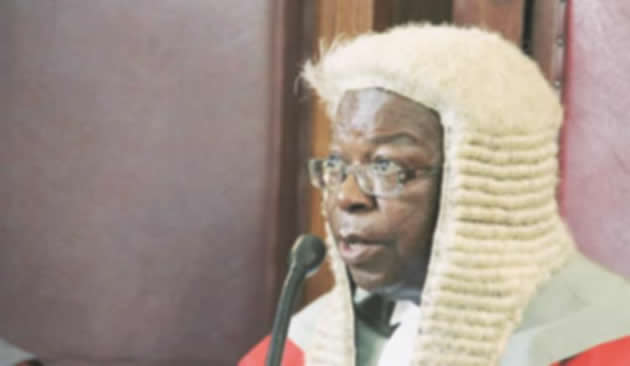EDITORIAL COMMENT: Concourt bail ruling restores trust

The Constitutional Court, by finding unconstitutional the section of the Criminal Procedure and Evidence Act allowing a prosecutor to suspend bail for seven days while an appeal is considered, shows that the Judiciary has a very clear idea of where the powers of the Legislature and the Executive, in its broadest sense, should begin and end and where the powers of the courts start.
And this has a direct bearing on how Zimbabweans can be treated under the law and how their rights can be respected, both the rights of an accused person or a law-breaker and the rights of society at large.
While the reasons for the unanimous decision by Zimbabwe’s top judges have still to be given, the questioning in the hearing, led by Chief Justice Godfrey Chidyausiku himself, indicates that the judges see the granting of bail as a judicial decision rather than as something to be made by prosecutors or any of the executive arms of the State.
This makes sense. A person in remand prison or on bail has yet to be convicted. So they cannot be punished. All that has to be decided is how to ensure that the accused persons will appear at their trials, that they will not pervert the course of justice and that they will not commit any offences while awaiting trial.
Someone has to make this decision. Most people would agree that a sensible person with legal training, holding an office that demands impartiality and with experience of administering the law, is the obvious choice; magistrates and judges are such people.
Defendants, prosecutors and defence lawyers are all parties to the criminal case and cannot exercise the necessary impartiality.
When making a decision on whether to grant bail and the conditions that should be imposed, a judge or magistrate has to look at many factors: the severity of the charges, the sort of initial evidence already assembled, the likelihood that an accused person will abscond and the chances that they might commit another crime or interfere with witnesses while out of custody.
Generally people with a fixed abode and facing the option of a fine or community service if convicted can be granted bail without much hesitation. In the particular case that led to this week’s ruling, that was the most likely result for the four if they had been convicted of tearing down election posters and disorderly conduct.
The prosecutor was probably also concerned about electoral violence, but could easily have made strong submissions that the four should be ordered to stay at home if granted bail. Prosecutors and defence lawyers should exercise imagination when making submissions on bail applications so a judicial officer making the decision can consider a range of options that preserve the rights of an accused person and the rights of society.
It would be interesting to see how this clarity of delineating functions within the legal system will progress. One obvious area that may well need a constitutional hearing is the question of minimum sentences, where the legislature wishes to tie the hands of the courts.
Setting high maximum sentences in an Act of Parliament is one thing, telling judges that society regards a particular crime as very serious; that is something the courts do have to consider. Giving a minimum sentence can remove judicial discretion and this week’s ruling suggests that is something that should at least be debated.
We take a lot of trouble to ensure that the men and women who preside over our courts, from the most junior magistrate to the Chief Justice, are qualified, sensible people able to administer the law fairly and impartially. We put in checks, such as the appeal system and there are procedures of rooting out the incompetent at the lower levels and ensuring that they do not rise to the higher levels.
We have the right to demand high standards, but having attained these, we should trust the people then chosen to administer our law and not try to tie their hands or circumvent their rulings.









Comments